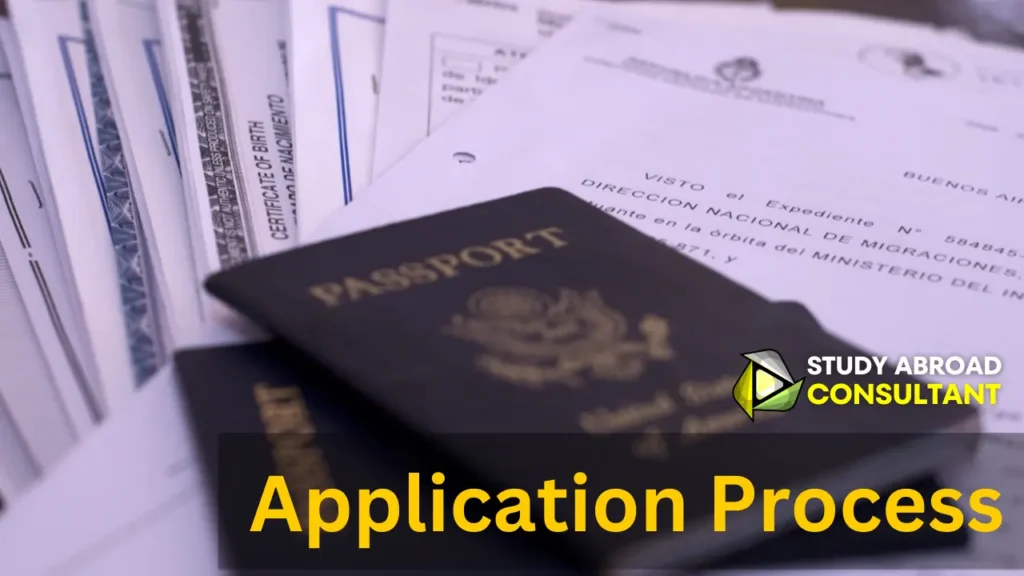Study in Germany for Pakistani Students
International students are increasingly choosing to study in Germany because of its excellent educational system, rich history, and cultural legacy. Germany’s excellent educational system, wide range of study options, and bright future prospects are luring more and more students from Pakistan. This extensive guide seeks to offer in-depth explanations of the various reasons Pakistani students might consider studying in Germany as well as advice on how to proceed with ease.
Why Attend University in Germany?
Globally Reputable Educational Framework
Germany boasts some of the best universities globally, known for their rigorous academic standards and innovative research. Institutions like the Technical University of Munich, Ludwig Maximilian University of Munich, and Heidelberg University are renowned for their excellence in various fields. These universities offer a wide range of programs taught in English, making it accessible for international students, including those from Pakistan.
Inexpensive Learning
One of the most significant advantages of study in Germany is its affordability. Most public universities do not charge tuition fees for undergraduate and many postgraduate programs. Students are only required to pay a nominal semester fee, which covers administrative costs and public transportation. This financial relief is particularly beneficial for Pakistani students who might find education in other Western countries prohibitively expensive.
A strong emphasis on innovation and research
Germany is a global leader in research and development, offering numerous opportunities for students to engage in cutting-edge research projects. Universities often collaborate with industry partners, providing students with practical experience and a pathway to employment. For Pakistani students interested in STEM (Science, Technology, Engineering, and Mathematics) fields, Germany’s focus on innovation is a significant draw.

Pakistani Students’ Application Process
Selecting the Correct University and Program
The first step in the application process is selecting the appropriate program and university. Prospective students should thoroughly research the courses offered, faculty expertise, and university rankings. Websites like DAAD (German Academic Exchange Service) provide comprehensive information on study programs and scholarships available for international students.
Language Requirements While study in Germany
Language proficiency is a critical aspect of studying in Germany.
Importance of German Language Proficiency
While many programs are available in English, knowing German can significantly enhance your experience and job prospects.
English-Taught Programs
Numerous universities offer programs in English, especially at the postgraduate level.
Language Courses and Preparation
Many universities offer language courses to help students meet the necessary proficiency levels while study in Germany.
Admission Requirements To Study In Germany
The admission process to German universities involves several steps:
Academic Qualifications
Students need to have their academic credentials recognized. This often involves meeting specific criteria equivalent to German secondary education standards.
Language Proficiency Tests
Proof of language proficiency, such as Test DaF for German or IELTS/TOEFL for English, is typically required.
Admission Requirements
Admission requirements vary depending on the program and university. Generally, Pakistani students need to have completed their higher secondary education (12 years of schooling) to be eligible for undergraduate programs. For postgraduate programs, a relevant bachelor’s degree is required. Proficiency in English or German is also necessary, with most programs requiring IELTS, TOEFL, or Test DaF scores.
Application Submission
Applications are typically submitted through the university’s online portal or via Uni-Assist, a centralized service that processes applications for many German universities. It is crucial to adhere to application deadlines and ensure that all required documents, such as academic transcripts, language proficiency certificates, and letters of motivation, are submitted.
Visa and Immigration
Obtaining a student visa is a crucial step for Pakistani students planning to study in Germany. The process involves securing admission to a recognized university, providing proof of financial resources, and obtaining health insurance. Students must apply for the visa at the German Embassy or Consulate in Pakistan and may be required to attend an interview.
Types of Student Visas
- Student Applicant Visa (Visum zur Studienbewerbung): For students who need to be in Germany to apply to universities.
- Student Visa (Visum zu Studienzwecken): For students already admitted to a university.
For Undergraduate Courses:
Pakistani students applying for an undergraduate course in Germany need to submit the following documents:
- Higher Education Entrance Qualification: Proof that you have completed the necessary education to enter a university.
- Grades from Previous Education: Transcripts showing your academic performance.
- Proof of Language Skills: Certificate showing proficiency in German or English.
- Curriculum Vitae (CV): An updated CV with your personal and academic information.
- Identity Documents: Valid ID or passport.
- Letter of Motivation (Optional): A letter explaining why you want to study in Germany and your chosen course.
Financial Considerations
Cost of Living
While education in Germany is relatively affordable, students need to budget for living expenses. The cost of living varies by city, with major cities like Munich and Frankfurt being more expensive than smaller towns. On average, students should budget around €800-€1,000 per month for accommodation, food, transportation, and other personal expenses.

Scholarships and Financial Aid To Study In Germany
Several scholarships are available for Pakistani students to help cover living expenses and other costs. Organizations like DAAD, Heinrich Böll Foundation, and Friedrich Ebert Foundation offer scholarships based on academic merit and financial need. It is advisable to apply for these scholarships well in advance, as competition can be intense.
DAAD Scholarships
The German Academic Exchange Service (DAAD) offers numerous scholarships for international students.
University-Specific Scholarships
Many universities have their own scholarships based on merit or need.
Other Funding Options
Look into private organizations and government-funded scholarships.
Scholarships To Study in Germany for Pakistani Students
Germany offers various scholarships for Pakistani students, making it an attractive study destination. To apply for scholarships in Germany, students typically need to demonstrate academic excellence, language proficiency, and in some cases, financial need. The application process and requirements vary depending on the scholarship program. Some popular scholarships for Pakistani students in Germany include the DAAD scholarships, which are offered by the German Academic Exchange Service, and scholarships provided by German universities. These scholarships provide opportunities for Pakistani students to pursue their education in Germany and experience the country’s rich culture and vibrant academic environment.
Life as a Student in Germany
Accommodation
Finding suitable accommodation is an essential part of the student experience. Options include university dormitories, private apartments, and shared housing (Wohngemeinschaft or WG). University dormitories are often the most affordable option, but spaces are limited, so early application is recommended.
Cultural Integration and Student Life
Germany is a culturally rich and diverse country, offering a vibrant student life. Universities often have international offices and student organizations that help newcomers integrate and build a social network. Learning some basic German can significantly enhance the experience, even though many people speak English.
Work Opportunities
International students are allowed to work part-time during their studies. This provides a chance to earn extra income and gain work experience. However, it is essential to balance work and study commitments to ensure academic success.

Career Prospects After Graduation
Post-Study Work Visa
Germany offers favorable post-study work opportunities for international students. Graduates can apply for an 18-month residence permit to seek employment related to their field of study. This period allows students to explore job opportunities and establish their careers in Germany.
Job Market and Opportunities
Germany’s strong economy and industrial base provide a robust job market for graduates, particularly in engineering, IT, and scientific research. Pakistani students with a German degree and work experience are highly regarded by employers, both in Germany and internationally.
Permanent Residency
After securing employment, graduates can apply for an EU Blue Card, which is a pathway to permanent residency in Germany. This makes Germany an attractive option for those looking to build a long-term career abroad.
Conclusion
Germany offers an exceptional education system, diverse cultural experiences, and promising career opportunities, making it an ideal destination for Pakistani students. With careful planning and preparation, students can successfully navigate the application process, adapt to life in Germany, and build a rewarding future.
You can Also Read : Study in Canada
Frequently Asked Questions
1. What are the language requirements for study in Germany?
Most universities in Germany offer programs in both English and German. For English-taught programs, you will need to provide proof of proficiency through tests like IELTS or TOEFL. For German-taught programs, Test DaF or DSH certificates are typically required.
2. How can Pakistani students apply for scholarships in Germany?
Scholarships are available through various organizations such as DAAD, Heinrich Böll Foundation, and Friedrich Ebert Foundation. Students should research eligibility criteria and deadlines and submit their applications well in advance.
3. Is it possible to work while study in Germany?
Yes, international students are allowed to work part-time during their studies. They can work up to 120 full days or 240 half days per year. However, it’s important to balance work and academic commitments.
4. What is the process for obtaining a student visa for study in Germany?
To obtain a student visa, you need an admission letter from a recognized German university, proof of financial resources, health insurance, and a valid passport. The visa application must be submitted to the German Embassy or Consulate in Pakistan.
5. Are there any specific admission requirements for Pakistani students?
Admission requirements vary by program and university. Generally, Pakistani students need to have completed higher secondary education for undergraduate programs or hold a relevant bachelor’s degree for postgraduate studies. Language proficiency in English or German is also required.
6. What are the living expenses for study in Germany?
Living expenses vary by city, but on average, students should budget around €800-€1,000 per month. This includes accommodation, food, transportation, and other personal expenses.
7. Can students stay in Germany after graduation?
Yes, graduates can apply for an 18-month residence permit to search for a job related to their field of study. Once employed, they can apply for an EU Blue Card, which can lead to permanent residency.
8. How do I find accommodation in Germany?
Students can choose from university dormitories, private apartments, and shared housing. It’s advisable to apply for university dormitories early due to limited availability. Websites and university housing offices can assist in finding private accommodation.



